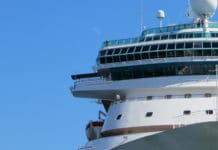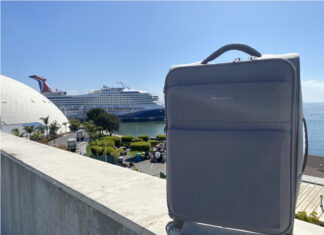The vast majority of people are excited to take their cruise. Between sun, shows, drinks, and exotic ports of call, there’s a lot to look forward to. However, there is a small segment that may be hit with something else: cruise anxiety.
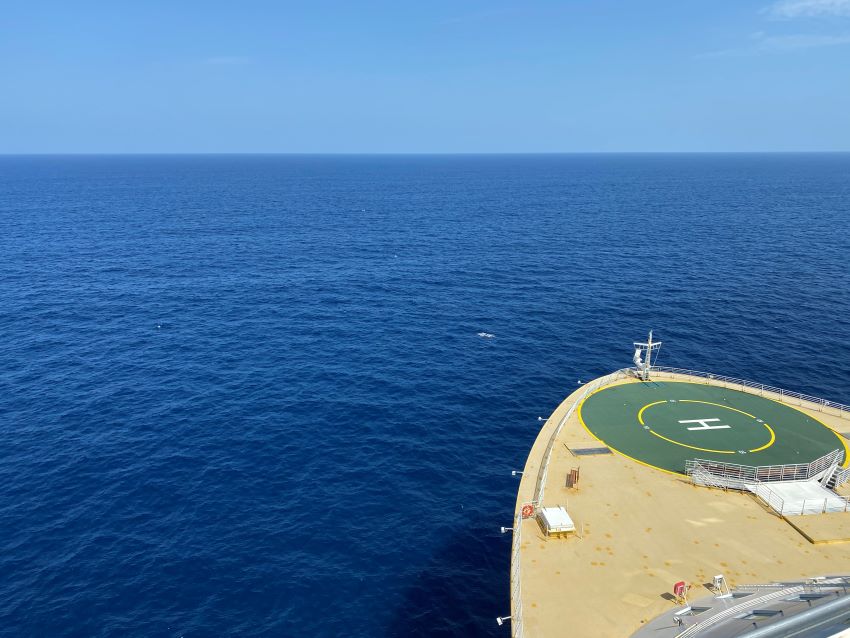
Why would someone that’s anxious about cruising be on the ship? While they might prefer a different type of vacation, sometimes people sail because they are pressured into it. For instance, maybe a family is having a reunion aboard a ship and the choice is either to overcome the fear of sailing or miss out on the family time together. So, they get on the ship.
What is there to be anxious about? And what should you know about those fears?
Below, we highlight some of the biggest fears some people have about cruising, and also explain why we don’t think they are really aren’t anything to be worried about.
Cruise Anxiety #1: Fear of Open Water
Perhaps the most common fear of taking a cruise is thalassophobia — anxiety or fear of open water. While there are no hard statistics on the number of people that have this condition, it’s certainly not uncommon.
We will be honest, for those that have anxiety about open water a cruise can stir some strong emotions. Depending on your route, you can be literally hundreds of miles from the nearest land and well without sight of ship or shore. That can be too much for some people.
Rationally, however, you have very little to fear. For one, cruise ships are extremely stable. The vast majority of the time you likely won’t even be able to tell you are on the water. And while you’re on the open water, any deck area will feature a high guardrail (usually about chest high on most adults) that ensures you can’t accidently fall overboard. You are safe on the ship.
Furthermore, if your fear of the water is overcoming you, remember that there is way more to a cruise ship than the pool deck. Inside the ship features promenades, the casino, restaurants, shops, and more. Theoretically, you can spend an entire day inside the ship — never seeing the ocean — and still have a great time.
Cruise Anxiety #2: The Ship Will Sink
In 2012, Costa Concordia famously wrecked off the coast of Italy. In the tragedy, 33 people died. The wreck made national news and perhaps turned an untold number off of cruises forever.
The images were dramatic and visually stunning. However, the chances of your ship sinking are insanely small. Consider that each year tens of thousands of cruises set sail. Costa Concordia is the only time we can recall that a modern cruise ship has sunk. There have been other issues at sea (such as fires or loss of power), but the odds of this happening to your cruise are small.
One thing it might help to remember is that when events like this occur, they always make news. By rule, if something is newsworthy, it means is it relatively uncommon.
As well, unlike in the days of the Titanic, modern ships sail with life jackets and lifeboats for every person onboard. There’s also a muster drill you’ll do at the start of the trip to go over safety procedures, and the crew is trained in what to do in an emergency.
Cruise Anxiety #3: Getting Sick/Seasick
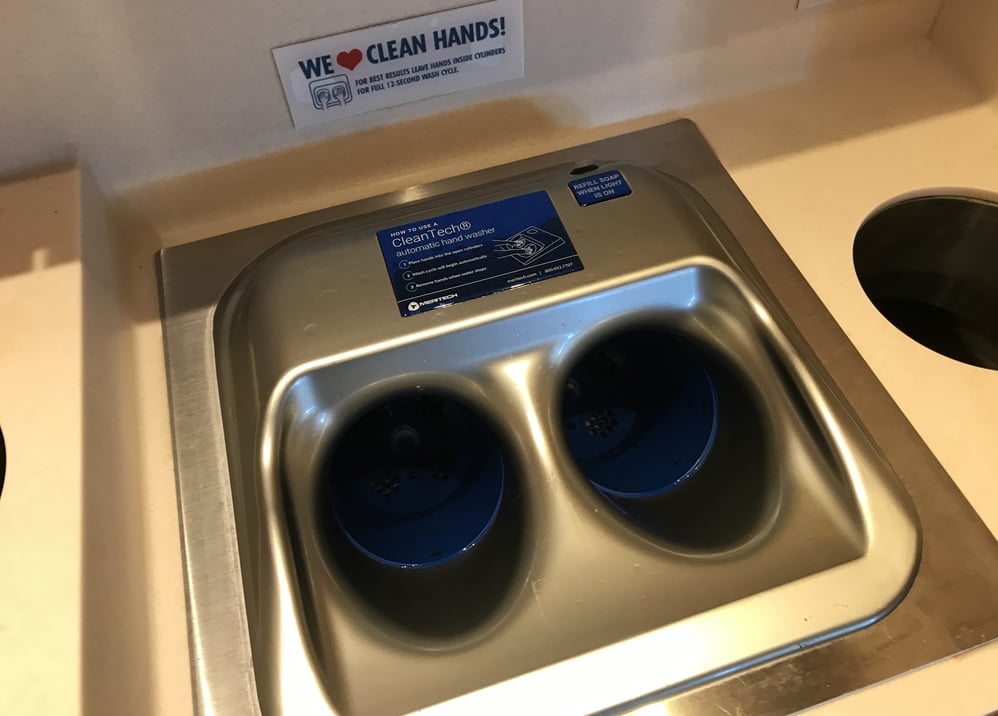
Unfortunately, one drawback of having a lot of people in a (relatively) confined space is that illness can spread. It’s one reason that cruise lines clean constantly around the ship and always encourage covering coughs and handwashing.
If you’re worried about illness, there are some simple steps you can take to reduce the risk. First, as the cruise lines encourage, keep those hands clean. We try to avoid touching common surfaces like handrails and elevator buttons (you’ll see the crew cleaning these surfaces regularly as well). We also sanitize and/or wash hands frequently — especially before eating.
Overall, we’d argue that given the constant cleaning you’re less likely to fall ill on a cruise than any other place on land where you share space with other people.
There are also people that worry about seasickness. Different people have different sensitivities to motion, but we will say that most cruises are surprisingly calm. For one, today’s modern ships are very stable (seriously, there are pool tables on many ships, they are so stable). Approximately 75% of the cruises we’ve taken, we can’t even tell we are at sea.
The other trips, yes, you can feel the occasional movement, but nothing major. We find air travel to be much bumpier than cruising.
Also, if you’re worried about it, motion sickness medications like Dramamine are just a few bucks.
Cruise Anxiety #4: Fear of Large Crowds
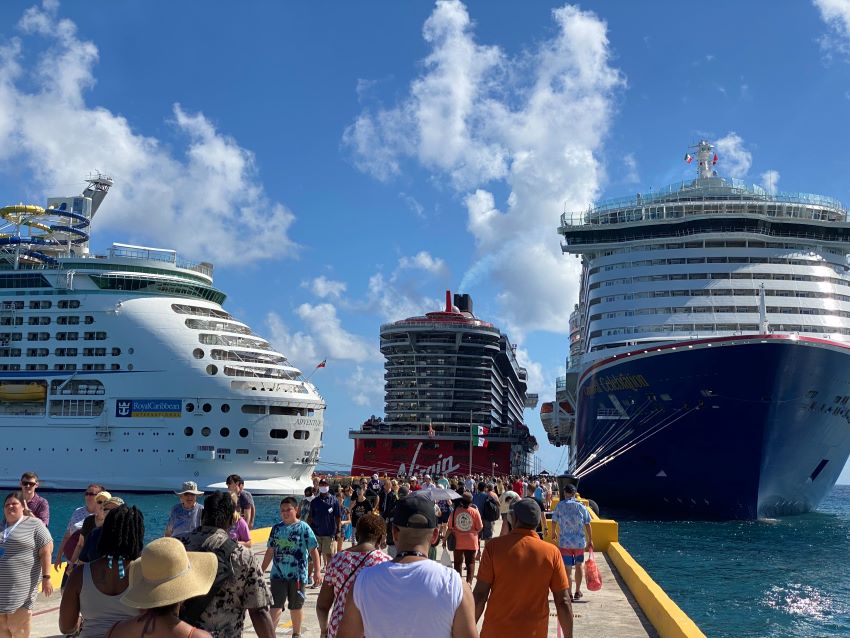
Have a fear of large crowds? That’s also known as enochlophobia, and you’d think a cruise ship would be a terrible place to be for it. After all, modern ships can carry upwards of 6,000 passengers. You might think that would make the entire ship crowded. That’s not really the case.
First things first, yes, cruise ships can be crowded… in some areas. If you go to the sail away party on the pool deck during the first day, expect there to be lots of people. If it’s raining outside during a day at sea, then yes, the interior promenade areas will be busy.
But if you think the entire ship will be crowded at all times, think again.
For one, as ships increase the passenger counts, they are also increasing in size. They don’t just stuff more passengers into the same sized ship. We use the space ratio — a measure of a ship’s tonnage divided by passenger capacity to see which ships have more room. A ratio above 40 is pretty roomy.
As well, ships have lots of public areas to spread people out. There’s always somewhere you can find that’s largely empty.
Bottom line: Yes, there are crowds on the ship but they aren’t everywhere and they aren’t constant.
Cruise Anxiety #5: Being Left in Port
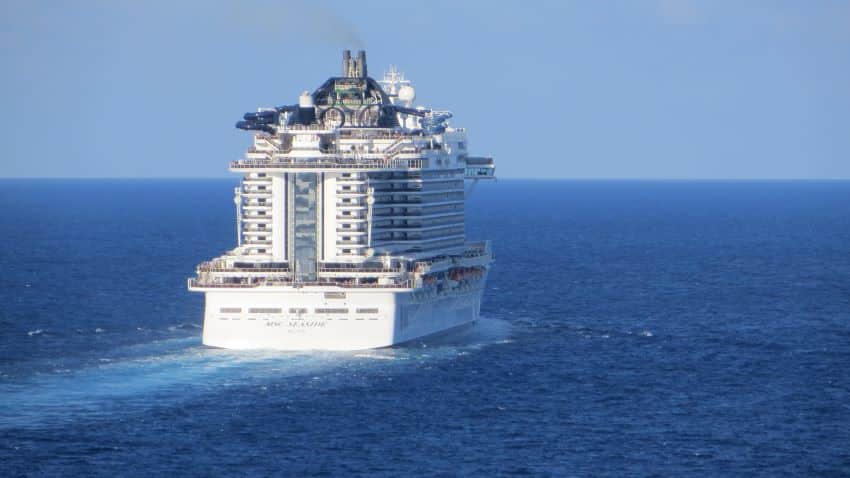
Stories of passengers being left in port made headlines recently, and why wouldn’t they? Being left in a foreign port with no way to get home is the sort of thing that literal nightmares are made of. When it happens in real life, it captures the imaginations — and fears — of many.
The good news? It’s relatively rare and we’d argue in most cases that missing the ship comes down to a mistake by the passenger.
If you are worried about being left, you can do a few things. First, just keep an eye on the time while in port and return well ahead of when the ship departs. There’s no reason to return at the last minute.
If you do a shore excursion or go explore on your own, we recommend something early in the day, allowing you plenty of time to return to the ship should anything happen. You can also book shore excursions through the cruise line, which normally come with a guarantee that the ship won’t leave if you’re delayed.
In general, simply keep an eye on the time and you should be just fine. In all of our cruises, we’ve never even come close to missing the ship.




